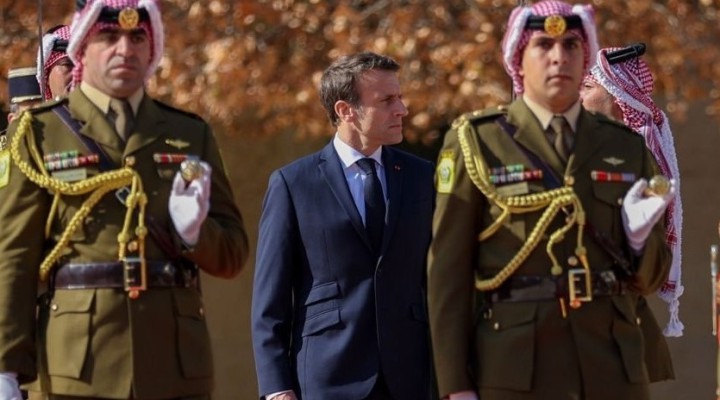Macron’s tilt to the Arab World

France risks losing its big-power status in the emerging new world order
For decades, France had a foreign policy focus on Africa, especially the Sahel and Maghreb regions. But Emmanuel Macron began to shift that focus onto the Arab world. There’s barely a conference, funeral, or summit he hasn’t attended — from the climate summit in Sharm al-Sheikh to the Francophone summit in Tunis, and the Baghdad-2 summit in Jordan, while stopping over in Doha in between to watch his country’s team play in the World Cup.
Several issues lie behind the French president’s frenetic activity and his in-depth meetings on the side-lines of these events with leaders of Middle Eastern and North African, and especially Gulf, and Arab countries.
First, the decline of French influence in Africa in favour of China and the US, especially after the defeat and subsequent withdrawal of French forces from Mali and the Sahel region. Also, the deterioration of France’s relations with both Morocco and Algeria due to its attempts to play both sides and exploit their bilateral quarrels — an opportunist policy that backfired badly.
Second, Europe’s entanglement in the Ukraine war, and the rift in relations between Europe and the US caused by the emergence of a new Anglo-Saxon axis (US, UK, and Australia) that is gradually being given priority over NATO and the Western alliance that was formed after World War II.
Third, the acute energy crisis caused by Western sanctions on Russia due to its invasion of Ukraine. This has prompted France and other European countries — facing severe economic crises, depleted finances, and fresh waves of migration — to look to alternative suppliers of oil and gas.
The question now is how will the French president manage his country’s reorientation towards the Arab world, both its western Maghreb (North Africa) and its eastern Mashreq (Middle East) wings?
Will he introduce serious policy changes, or continue the old policies, with superficial cosmetic amendments, that have made France hated among most of the region’s peoples and governments?
It may be premature to make definitive judgments in this regard. But there have been signs that the French authorities recognise there’s a problem here that must be remedied — hence Macron’s serial visits to the Middle East and North Africa and the spectacular receptions laid on for the region’s leaders in Paris.
On Friday, excerpts were published from an interview Macron gave to three Lebanese media outlets. He called for the removal of Lebanon’s traditional political leaders who oppose reform and impede the restructuring of the financial system, and the election of an honest president and prime minister who can achieve those goals and enjoy popular support. This would be a positive change in French policy if it were serious and strategic, rather than a tactic to counter the prevalent antagonism in the region against France and its president.
France has been for decades, and still is, the warmest incubator for Lebanon’s corrupt feudal political leaders, providing them with protection and support while subscribing to the US and Israel’s policies to weaken the country, impoverish its people, and steal its oil and gas resources.
Unless these policies and attitudes are radically changed, France will be one of the biggest losers. It will lose its status as a big power as the world changes, and Western hegemony recedes to give way to a new multipolar global order.
https://www.raialyoum.com/macrons-tilt-to-the-arab-world/
 TheAltWorld
TheAltWorld 
0 thoughts on “Macron’s tilt to the Arab World”